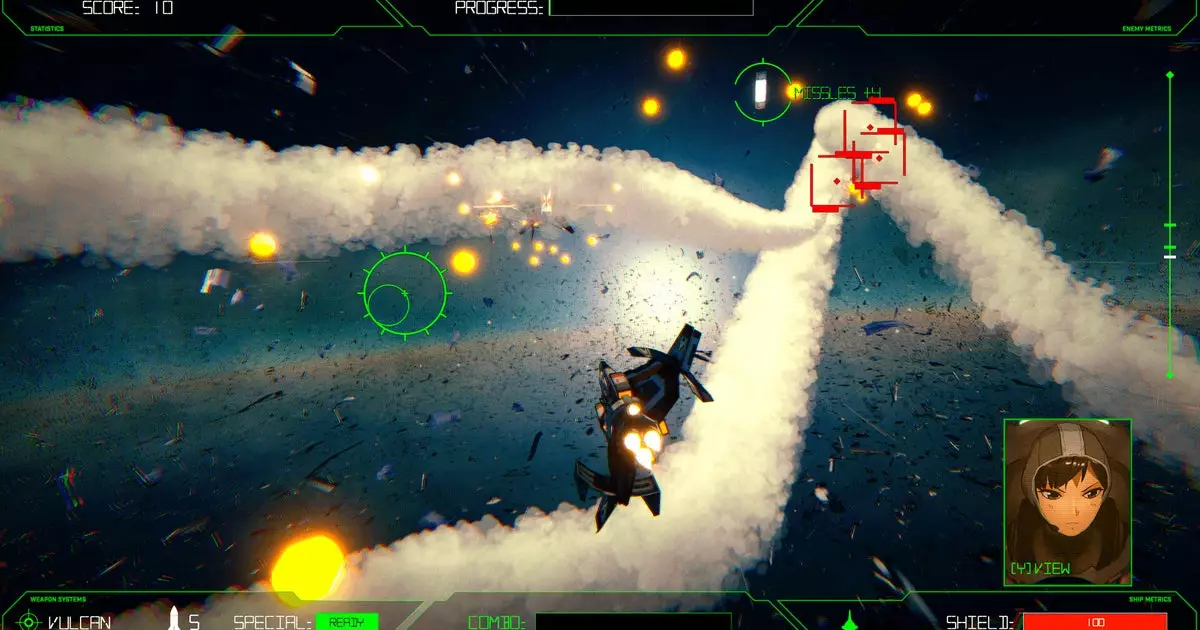Rogue Flight emerges from the realm of arcade gaming, drawing references and inspiration from iconic titles of the ’80s and ’90s, particularly resonating with the beloved aesthetics and gameplay mechanics that defined that era. This upcoming space combat game channels the frenetic energy of nostalgic franchises like StarFox, promising players an engaging experience that fuses traditional mechanics with contemporary twists. Scheduled for release later this year, Rogue Flight is generating excitement, not just for its gameplay but also for its unique artistic direction, which pays homage to the signature style of classic anime.
At its core, Rogue Flight is designed to be exhilarating. Gamers can expect to maneuver their customizable spacecraft through nine distinct stages, all while engaging in high-octane battles against formidable adversaries. The gameplay features acrobatic maneuvers, allowing players to perform awe-inspiring stunts as they blast through waves of enemies. The addition of a branching narrative path introduces a layer of depth, enabling players to influence the direction of the story they are part of. Furthermore, the implementation of a roguelike mode, potentially incorporating elements of permadeath, indicates a dedication to replayability—an essential factor for maintaining player interest in contemporary gaming.
A significant focus in Rogue Flight’s marketing strategy is its voice cast, featuring celebrated Japanese actors known for their contributions to popular anime series such as Sailor Moon and Neon Genesis Evangelion. While the emphasis on an illustrious voice cast may attract hardcore anime enthusiasts, it raises questions about accessibility and engagement for players less familiar with the original Japanese productions. The English voice cast, comprised of familiar actors from contemporary games like Fallout 76 and Overwatch, serves to bridge the gap for a wider audience. However, the debate between subbed and dubbed experiences illustrates a cultural divide that could impact the game’s reception.
While the mechanics of spaceship combat in Rogue Flight are undoubtedly thrilling, the aesthetic choices resonate on a deeper emotional level. The game captures the essence of some poignant themes often found in anime: melancholy, longing, and the burden of existence. Players are not merely piloting spacecraft; they are navigating vessels laden with emotional weight, which mirrors our own struggles and disappointments. In an age where games can often feel superficial, Rogue Flight stands out by offering an opportunity for players to explore these deeper emotional narratives, turning combat into a conduit for personal expression.
Rogue Flight holds the promise of being a unique entry into the space combat genre, one that transcends the typical thrills associated with arcade gaming. By embedding a rich narrative and emotional depth within its framework, it invites players to reflect on their own experiences while engaging in exhilarating gameplay. As the release date approaches, anticipation grows not just for the gameplay, but for how Rogue Flight will ultimately weave together the threads of nostalgia, emotion, and interaction in an ever-evolving gaming landscape.


Leave a Reply
You must be logged in to post a comment.